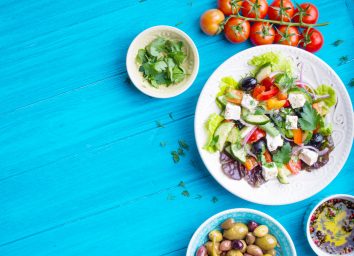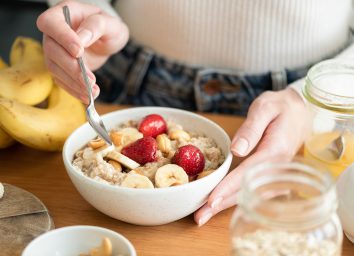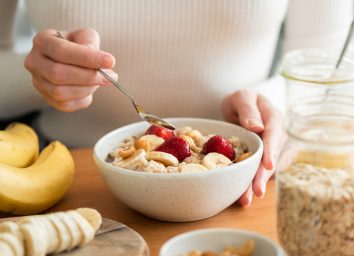7 Eating Habits to Lose Belly Fat and Slow Aging, Say Dietitians

Every body has a different size, shape, and weight. And despite common belief, your weight is actually not always an indicator of your health. This is especially true as you get older and experience more natural weight fluctuation.
When it comes to weight, what is more important to look out for is a type of fat called visceral fat, which sits around your stomach area. This is known as the "dangerous" type of fat because it grows around your organs and can increase your risk of certain diseases. Because of this, managing your visceral fat as you age can be an important part of preventing age-related disease.
Learn how changing some of your eating habits can help you lose this belly fat and slow aging in the process, and for more healthy eating tips, check out 5 Best Low-Sodium Recipes to Reduce Heart Disease Risk.
Drink plenty of water throughout the day.

Drinking enough water is key to every aspect of your health. If you're not getting enough of it, you may experience things like irritability, feeling much hungrier, bladder troubles, heart and kidney issues, and lack of energy, to name a few of many. So when you're looking to adopt some healthier habits, start with your water intake.
"Drinking water can help fill you up so that you eat less overall, and it also helps keep your skin looking young and healthy by flushing out toxins from your body," says Janet Coleman, RD with The Consumer Mag.
Eat more vegetables.
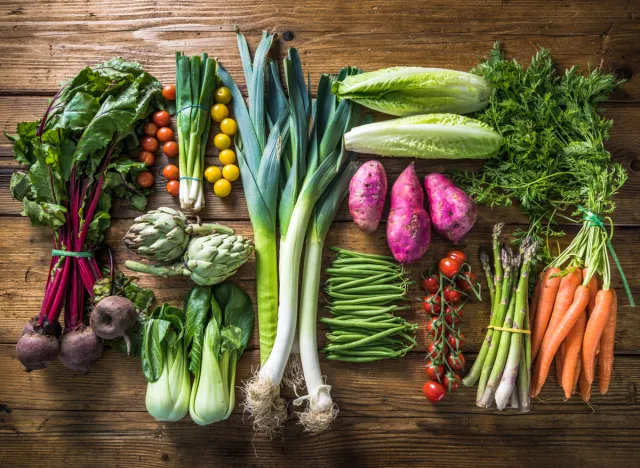
When it comes to healthy eating in order to slow aging, you can't go wrong with vegetables.
"Vegetables are rich in antioxidants, vitamins, minerals, and fiber, all of which help keep you young and healthy," says Coleman. "You should include vegetables in every meal when possible because they are low in calories but high in nutrients. I also suggest eating a wide variety of vegetables such as broccoli, kale, spinach, peppers, tomatoes, carrots, and onions instead of only one type of vegetable at a time."
Eat a healthy breakfast every day.

Although some people may unintentionally skip it when they're busy, breakfast is one of the most important parts of your day.
"Eating a meal in the morning helps fuel your body so you're less likely to binge on junk food later in the day," says Coleman. "If you have time, make sure you eat breakfast within an hour of waking up, as this will give your body enough time to digest before your first meeting."
Try intermittent fasting

The only time "skipping breakfast" should be practiced is if you're intentionally trying an intermittent fasting approach after getting the approval from a doctor or dietitian.
"This approach to eating is less of a diet and more of a lifestyle that can improve both your weight and your longevity," says Trista Best, MPH, RD, LD at Balance One Supplements. "Intermittent fasting aids in lowering inflammation in the body, which is known to cause and exacerbate chronic diseases common to the West. Longer fasting periods are said to have effects at the cellular level which improve inflammation, immune response, and longevity."
Eat more whole foods.
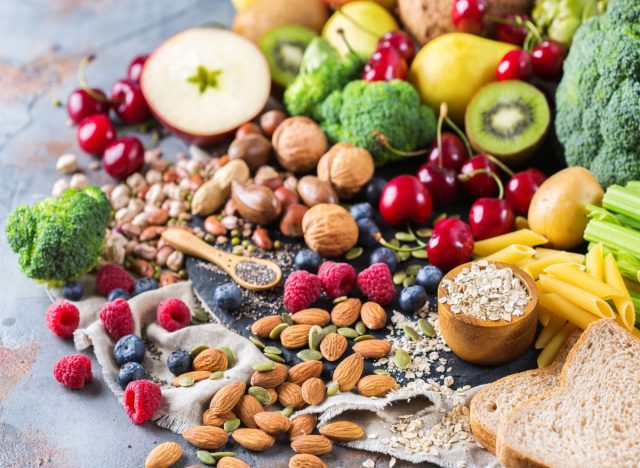
Whole foods are essentially the opposite of processed foods, and according to Best, it's crucial to limit your processed food consumption and replace them with whole foods whenever you can.
"Processed food is a food product, meaning it is not a whole food. Processed foods are those made from refined carbohydrates, stabilizers, emulsifiers, and other ingredients to enhance shelf stability, flavor, and texture," says Best. "When we eat foods like this in large quantities, they can irritate the gut, cause an imbalance in gut bacteria, and ultimately lead to chronic-low grade inflammation. In contrast, whole foods have not been modified in any way to add to or take away from their nutrient quality."
Eat less red meat.
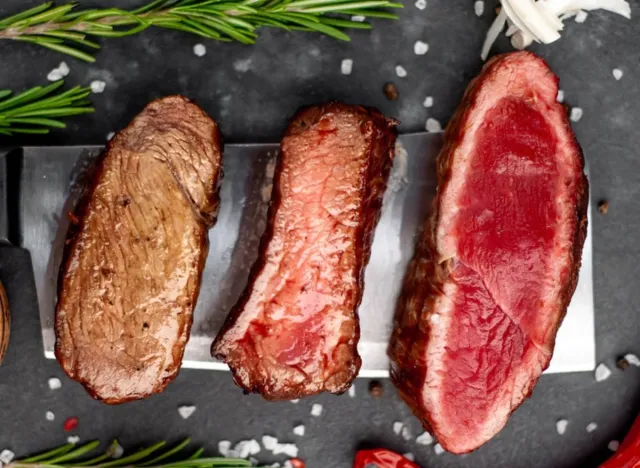
While red meat in moderation is okay, eating it in large quantities over time can speed up the aging process significantly.
"Red meat contains saturated fats that raise cholesterol levels in the blood and increase the risk of heart disease, stroke, and cancer if eaten regularly over time," says Coleman. "Instead of red meat, try chicken or fish, which are leaner sources of protein than red meat. Eating less red meat will also reduce your chances of developing colon cancer significantly."
Eat smaller portions of food at each meal.
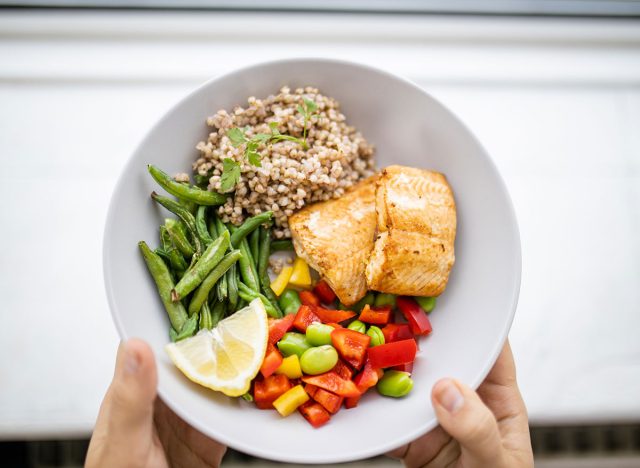
Lastly, if you feel that eating three meals a day isn't working well for you, you may want to try switching up when and how much you're eating at each meal.
"Instead of eating three big meals a day, try eating six small meals throughout the day. This helps keep your metabolism revved up so that you burn more calories throughout the day," says Coleman.

